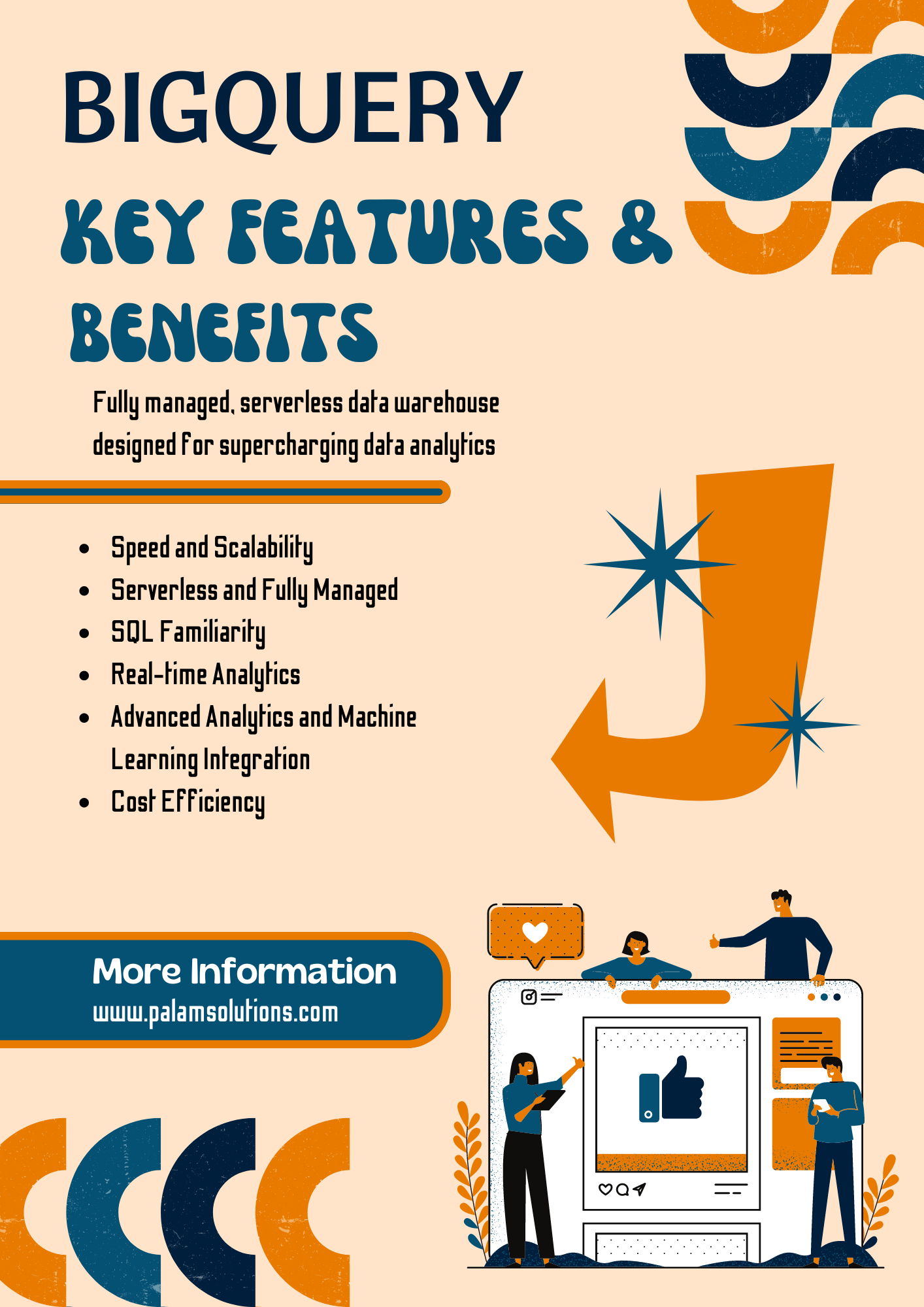
- August 23, 2023
- admin
- Bigquery, Business, Data Science, Data Visualization, Google Cloud, Reports, Technology
In the realm of data analytics, efficiency and speed are paramount. Enter Google BigQuery, a cutting-edge cloud-based data warehousing solution that empowers businesses to analyze massive datasets at lightning speed. In this article, we’ll delve into the world of BigQuery, uncovering its significance, key features, benefits, and its seamless integration into the broader Google Cloud ecosystem.
What is BigQuery and Why is it Important?
Google BigQuery is a fully managed, serverless data warehouse designed for supercharging data analytics. It is specifically crafted to handle immense volumes of data while delivering real-time querying capabilities. BigQuery operates on a pay-as-you-go pricing model, making it an appealing option for businesses of all sizes.
The importance of BigQuery lies in its ability to process complex queries across petabytes of data in seconds. This rapid querying empowers organizations to glean actionable insights swiftly, aiding in informed decision-making. It erases the need for investing in and managing traditional hardware, streamlining operations and allowing teams to focus on data analysis rather than infrastructure upkeep.
Key Features and Benefits of Using BigQuery
1. Speed and Scalability: BigQuery’s architecture is designed to scale horizontally, enabling it to handle growing datasets without performance bottlenecks. Its distributed computing model means that as data increases, processing speed remains consistently high.
2. Serverless and Fully Managed: BigQuery takes care of infrastructure management, from provisioning resources to optimizing performance. Users can focus on their analyses without concerning themselves with server maintenance.
3. SQL Familiarity: BigQuery employs a familiar SQL querying language, allowing analysts and data scientists to leverage their existing skills. This lowers the barrier to entry for those transitioning to BigQuery from traditional databases.
4. Real-time Analytics: With BigQuery’s streaming capabilities, real-time data analysis becomes feasible. This is crucial for applications that require up-to-the-minute insights, such as fraud detection or monitoring social media trends.
5. Advanced Analytics and Machine Learning Integration: BigQuery isn’t just about SQL queries. It seamlessly integrates with Google Cloud Machine Learning Engine, enabling the creation of machine learning models that can be applied to data within BigQuery.
6. Cost Efficiency: The pay-as-you-go pricing model means you only pay for the processing power you use. This eliminates the need for upfront hardware investment and allows for budget-friendly scalability.
How BigQuery Fits into the Larger Google Cloud Ecosystem
BigQuery is a pivotal component of the comprehensive Google Cloud ecosystem. It synergizes with other Google Cloud services, forming a robust platform for data analytics and application development. For instance, data stored in Google Cloud Storage can be seamlessly queried using BigQuery, enabling a holistic data analysis approach. Additionally, BigQuery can be integrated with Google Data Studio for visually appealing data visualizations and dashboards.
In essence, BigQuery’s seamless integration into the Google Cloud ecosystem amplifies its capabilities, enabling businesses to harness the full potential of their data and drive innovation.
Conclusion
Google BigQuery is more than just a data warehouse; it’s a game-changer in the world of data analytics. Its lightning-fast querying, scalability, and integration within the Google Cloud ecosystem make it an indispensable tool for businesses seeking to extract meaningful insights from their vast datasets. By utilizing BigQuery’s features and benefits, organizations can unlock the power of data-driven decision-making, propelling themselves ahead in today’s data-centric landscape.
Categories
- Artificial Intelligence (19)
- Bigquery (7)
- Business (38)
- Chat GPT (6)
- Code (5)
- Data Science (23)
- Data Visualization (28)
- Google Ads (4)
- Google Analytics (19)
- Google Analytics 4 – GA4 (22)
- Google Bard (5)
- Google Cloud (6)
- Google Looker Studio (4)
- Google merchant center (2)
- Google tag manager (10)
- Healthcare (2)
- Hindi (6)
- Javascript (3)
- Migration (1)
- Natural Language Processing (5)
- NLP (3)
- Prestashop (3)
- Reports (10)
- SEO (1)
- Server-Side Tracking (10)
- Social Media (15)
- Technology (35)
- web design (2)
- web development (5)
- आर्टिफिशियल इंटेलिजेंस (5)
- एआई (5)
- कृत्रिम बुद्धिमत्ता (6)
- गूगल बार्ड (3)
- डेटा विज्ञान (1)
- डेटा साइंस (1)

